DWIs in Minnesota trigger driver’s license revocation periods. Depending on the circumstances of the DWI, prior DWIs or license revocations stemming from DWIs, the amount of time a person loses their driver’s license for can vary. However, Minnesota’s ignition interlock device program often allows drivers to get a restricted driver’s license during their revocation period. Recently, Minnesota enacted legislation that changed when ignition interlock is mandatory for someone to get their driver’s license fully reinstated with no restrictions at the end of the revocation time.
DWIs, the amount of time a person loses their driver’s license for can vary. However, Minnesota’s ignition interlock device program often allows drivers to get a restricted driver’s license during their revocation period. Recently, Minnesota enacted legislation that changed when ignition interlock is mandatory for someone to get their driver’s license fully reinstated with no restrictions at the end of the revocation time.
For a first-time DWI in Minnesota, ignition interlock is optional. A person can choose to wait out their revocation period and then go through license reinstatement at the DMV. A first-time DWI where the driver had an alcohol concentration under .16 will allow a person to get a limited license (a.k.a. work permit) after fifteen days of their ninety-day revocation period. A person who has a first-time DWI that is a DWI Refusal can get a limited license after fifteen days of their one-year revocation period. A driver who gets their first DWI and had an alcohol concentration of .16 or more can decide to sit out their one-year license revocation or they can get on the ignition interlock device program. In all three of the above scenarios, a reinstatement fee will need to be paid to the Minnesota Department of Public Safety (DPS) and an application will need to be made for a new driver’s license.
A second DWI in ten years in Minnesota makes ignition interlock mandatory if a person wants to drive during their revocation period; and if they want to eventually get a regular driver’s license back after their revocation period is over. This also applies for a person who has a third DWI in their lifetime. For a second DWI in ten years where the driver tested under .16, their ignition interlock time will be for one year. For a person who tests at least .16 or more or refuses the evidentiary breath test on their second offense, they will need to be on ignition interlock for two years.
For a third DWI in ten years in Minnesota, or fourth DWI in a lifetime, the period on ignition interlock is three years and it is mandatory for that person to get their regular driver’s license back. A fourth DWI offense in ten years triggers four years on ignition interlock, which is mandatory. Also mandatory is a fifth or more DWI offense that initiates six years on ignition interlock.
Importantly, if a person wants to lessen the time, they must be on ignition interlock, it is important to challenge the driver’s license revocation within sixty days of receiving notice of the revocation. This is called the implied consent process in which your DWI lawyer can file a petition for judicial review and try to get your revocation period reduced or eliminated. Besides winning your implied consent case, you must also obtain a dismissal or reduced offense in your DWI criminal case to obtain a lesser revocation period.

You must be logged in to post a comment.